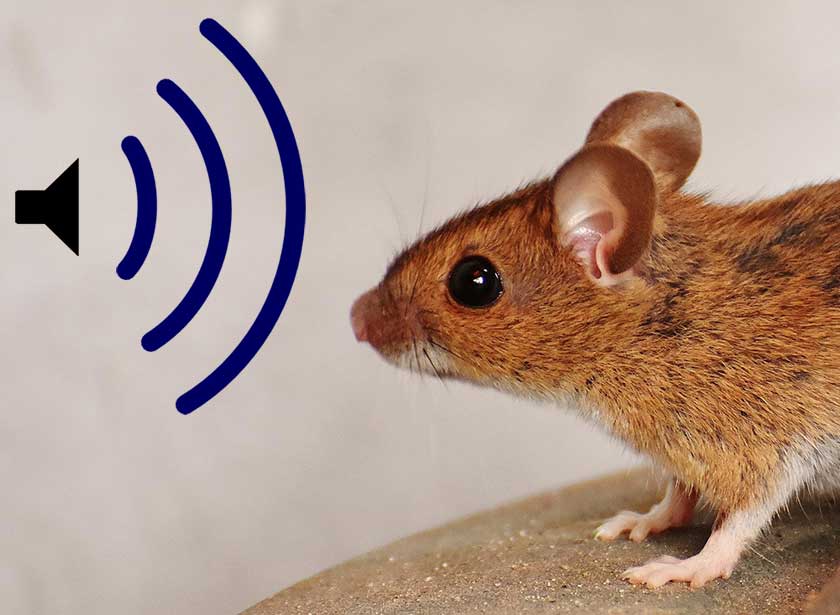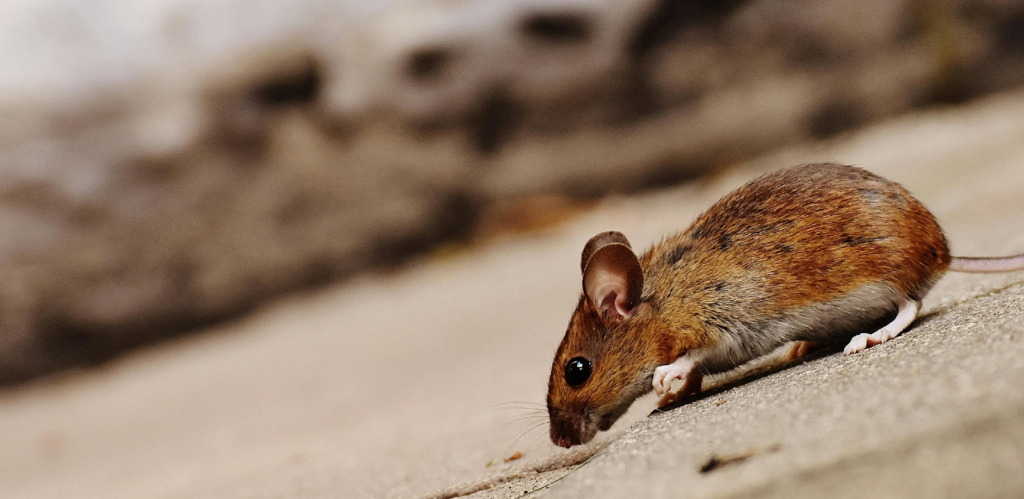In this article, we will look at ways you can deter rats from wanting to visit your property. There are plenty of methods available which range from simply ensuring your property doesn’t create an inviting environment for them, to using specially made repeller products.
Regardless of which methods you choose to employ, you should always start by ensuring the rodents do not have easy access to the three things they need to survive; food, water and shelter. We will have a look at how you can achieve this below.
Remove Access to Water
Rats need a regular supply of water to survive and need to access it daily. Although they need it regularly, they do not need much of it (they roughly drink 15ml-60ml of water a day) so their source of water may not be particularly obvious, such as a pond.
Therefore, make sure you check your property for any potential sources, such as leaking pipes, water left out for pets or broken drain covers that could lead to water sources below. Make sure all of your plumbing or water-related infrastructure is in good repair and, should any damage by discovered, fix it so that rats cannot gain access to the water.
As they cannot survive without regular access to water, by ensuring your property does not provide them with an easy drink, you can make it look like a far less-attractive proposition for nesting.
Remove Access to Food
Rats eat a wide variety of food and aren’t particularly fussy. Obvious sources can be where waste food is discarded near bins, however they will also happily feast on stored grains, fruit that has fallen in gardens, feed left out for birds, organic waste thrown on a compost heap, pet food and even human food that has been loosely stored in cupboards.
It’s important to check your property for potential sources such as those noted above and ensure they are not accessible by rodents. Make sure waste is deposited in secure bins with lids that a rat wouldn’t be able to move themselves. Any berries and fallen fruit in gardens should be cleaned up and disposed of, feed left out for birds should be located somewhere inaccessible for rats or removed entirely, compost should be disposed of in a secure, rat-proof compost heap and any stored food or grains should be in lockable containers (rats will easily chew through bags and sacks) located above ground floor level where possible.
Given rats are constantly on the lookout for food, by removing their access to it, you will not only naturally be following good hygiene practices, but also be forcing them to look elsewhere to survive. Combining this with removing access to water and shelter should mean they have no reason to want to be on your property.
Remove Access to Shelter
The last essential factor for these rodents to survive is access to shelter. Rats tend to live in colonies and breed prolifically, meaning they often need relatively large spaces to accommodate their numbers. By ensuring your property does not provide ample opportunities for them to create safe, thriving homes, you can dramatically reduce the chances of them setting up camp.
Ensure your property is kept tidy and in good repair. Outside, this means removing any debris or waste materials that can provide hiding places as well as ensuring vegetation is not overgrown, which can also provide hiding places or create sheltered travel where rats can move between nesting sites and food sources. On the inside of your property, ensure that any rubbish is disposed of correctly and that areas where you don’t frequent are checked and kept tidy (such as attics).
Regardless of how tidy you keep your property, there is no guarantee that rodents won’t create a new space as they can dig under sheds and decking to make nesting sites underground. It’s important to check these areas regularly and look for signs of digging or other signs of an infestation, such as droppings.
Checking areas that may provide access to your property from nesting sites located further away is also important. Broken drains can provide access from nesting sites in sewers and holes/cracks in fences and walls can provide access from neighbouring properties into your home/garden. Make sure any potential entry points are fixed and sealed appropriately. If there is a potential access point, however this is not due to broken infrastructure, a professional pest controller will be able to install rat-proofing options such as wire mesh.
Keeping your property tidy and in good repair will be beneficial to you in many ways, one of which being that rodents will be less likely to set up camp as they will not be able to find a safe nesting spot or move freely via sheltered travel routes.
Pest Repellers

Ultrasonic pest repellers are a relatively new innovation that can be installed in homes. They emit electronic waves at different frequencies that frustrate the rodent’s hearing and nervous system, making them feel uncomfortable and encouraging them to flee from the area.
These repellers normally come in one of two forms; a plug in deterrent that can be used indoors or a solar charged device that can be installed in gardens and is charged via the sun.
Although ultrasonic repellers can be effective, they should always be used alongside a wider campaign of rodent deterrence, including removing access to water, food and shelter.
Natural Repellers
Another element you could include in your rodent deterrent strategy is the use of plants and smells that are natural deterrents. Rodents have a fantastic sense of smell so targeting this with unattractive/overwhelming smells can, in theory, be an effective solution.
It is suggested that placing things like coffee grounds, garlic, mint, lavender, peppermint oils or crushed pepper around your property can produce smells that rats don’t like and deter them from entering. The smell of dogs or cats can also alert them to danger and put them off.
However, there is limited evidence to support the effectiveness of the use of these plants/smells as a deterrent. It’s also important to note that although they may not like some smells, they are incredibly adaptive and can get used to them quickly – especially in urban areas where they are constantly in areas where dogs and cats frequent.
Invite Natural Rodent Predators
Inviting natural predators of rodents onto your property can be an extremely effective deterrent (rats would rather find an easy meal elsewhere rather than risk their life!)
Birds of prey can be a great option, however, may be hard to attract depending on the size of your property. Installing homes for owls may entice them in and keep those pesky rats out!
Dogs and cats may be a more viable option and are also great options for chasing rodents off. However, it’s important to note that rats are carriers of dangerous diseases so any use of domestic animals to deter them should be properly considered against the dangers posed to the pets, as well as the potential dangers to humans (if, for example, the cats freely enter homes, potentially bringing diseases into the house).
Ensure Neighbouring Properties Follow Similar Steps
You can follow all the steps currently known to deter rats to the letter, however if your neighbours do not follow similar practices, your pest control effectiveness will be diminished.
For example, if you keep your property tidy and in good repair, however your neighbour treats their overgrown garden as an open waste disposal site, they’re likely to attract large numbers of rats, making it more likely they will travel across to your property.
Therefore, to increase the effectiveness of deterring rats, especially in urban areas, speak to your neighbours to ensure everyone is following best practices. A combined community effort is far more likely to produce effective results than individual efforts.
Conclusion
There are plenty of ways you can deter rats from frequenting or even nesting on your property. These include removing access to water, food and shelter as well as installing professional and/or natural repellers. Implementing general good health, safety and hygiene practices is normally the first port of call and as these should be followed anyway, the start of your campaign will have wider benefits that just pest control.
However, regardless of the steps you take to keep rodents away, they are incredibly persistent and adaptable creatures so there can be no guarantee they will stay away.
If the measures you implement are ineffective, or you have already witnessed signs of a rat infestation, looking at ways to prevent them may be too late. However, tips such as removing access to food, shelter and water are often good practice when undertaking steps to eradicate them and so can be applied universally, regardless of what stage of an infestation you are experiencing. If already infested, you can look at ways to get rid of rodents which can include traps and poisons. At The Pest Collective, we supply a range of high-quality traps, rat poison and repellers that can be effective at any stage of an infestation.
If an infestation is discovered, it’s important to act quickly as rats are prolific breeders. Getting on top of them as soon as possible can reduce the risk of becoming overwhelmed by much larger infestations.
Regardless of what you are tackling, or what methods you use to eradicate these unwanted guests, always follow industry guidance, appropriate law, health and safety guidelines and the manufacturer’s instructions where appropriate. If you are ever in doubt or have questions around your options, always contact a professional pest controller.






